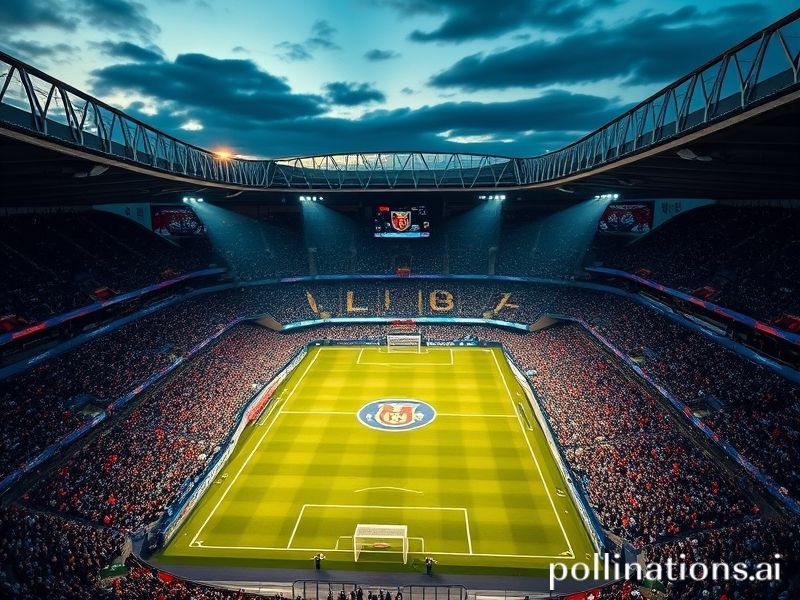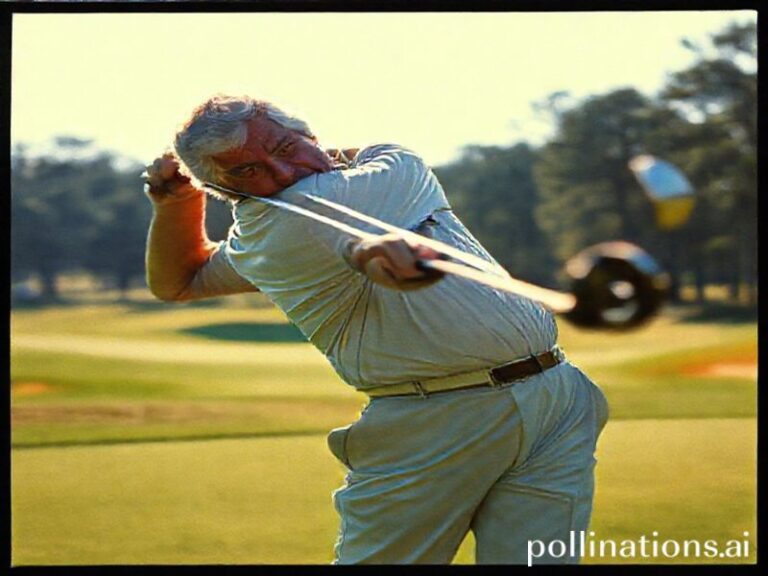Birmingham vs Bristol: When the World’s Most Important Unimportant Game Kicks Off
Birmingham City vs Bristol City: A Clash of Civilizations (or at Least the West Midlands and the West Country)
By the time the final whistle blows at St Andrew’s on Saturday, roughly 22 million people in 195 countries will have glanced at the scoreline, muttered “who cares,” and returned to doom-scrolling about submarine cables or the latest crypto-heist. Yet for the few dozen souls still invested in the English second tier, the Birmingham-Bristol fixture is less a football match than a geopolitical barometer—proof that even the most parochial affairs can be twisted into grand narratives when the world’s attention span is shorter than a VAR check.
Let’s zoom out. Birmingham, self-declared “workshop of the world,” now produces little more than artisanal bankruptcy filings and nostalgia for Peaky Blinders cosplay. Bristol, once the launchpad for imperial plunder, has rebranded as the UK’s capital of ethical oat-milk start-ups and guilt-ridden statues. Between them lies 90 minutes of hoof-and-hope, a ritual that somehow still matters to satellite gamblers from Manila to Montevideo who’ve staked next month’s rent on whether Jay Stansfield can out-run a back line that collectively looks like it’s been assembled from mismatched IKEA parts.
Globally, this fixture is a reminder that the Premier League’s soft power hoover has sucked most of the oxygen from the room. The Championship remains the last place where a club can still go bust the old-fashioned way—by trying to buy promotion with money that exists only in the chairman’s crypto wallet. Birmingham’s prospective new owner, a US-based “data-driven investment consortium,” promises to turn the club into the Tesla of lower-league football: sleek, sustainable, and liable to burst into flames at any moment. Bristol’s board, meanwhile, speaks of a “holistic pathway” involving quinoa-based half-time snacks and carbon-neutral corner flags. Somewhere in Jakarta, a fan wonders why neither side has simply tried scoring more goals.
The tactical intrigue, if we may use the term loosely, is whether either manager remembers that defending is still legal. Birmingham’s new gaffer—fresh from a mid-table stint in Denmark where he perfected the art of the 0-0 draw against part-time librarians—has vowed to “implement patterns of play.” Translation: sideways passing until the crowd begs for the sweet release of extra time. Bristol’s coach, a man who looks like he’s spent lockdown subsisting solely on disappointment, counters with a high press designed to win the ball back within 0.7 seconds of losing it. The result, analysts agree, will be a chess match played with checkers pieces on a Cluedo board.
Off the pitch, the match illuminates the strange economics of post-Brexit Britain. Birmingham’s hospitality sector depends on away fans arriving via the M5, a motorway now prone to impromptu lorry parks stretching to the horizon. Bristol’s travelling faithful, meanwhile, must navigate a rail network held together by duct tape and the forlorn hope that this week’s strike will be “only” 48 hours. In Singapore, hedge-fund algorithms translate any delay into fractional odds on second-half corners; in Lagos, a betting syndicate hedges against the existential dread that both teams will forget how to score.
The wider significance? In a world tilting toward multipolar chaos, the Championship offers a comforting return to bipolar simplicity: win, lose, or draw, nobody really wins. The victors gain three points toward a promotion that will almost certainly end in immediate relegation; the losers console themselves that failure builds character, which is what people say when they’ve run out of ideas and operating cash. Either way, the global supply chain of schadenfreude remains uninterrupted.
So when the final whistle shrills and the scoreboard displays whatever cruel arithmetic fate has chosen, remember this: somewhere a pundit will call it “a proper English blood-and-thunder affair,” a diplomat will file it under “soft power deficit,” and the rest of humanity will keep scrolling—unaware that, for 90 minutes in the drizzle, two cities staged a pocket-sized referendum on the limits of ambition in an age of managed decline. Which, come to think of it, is exactly what football was invented for.







